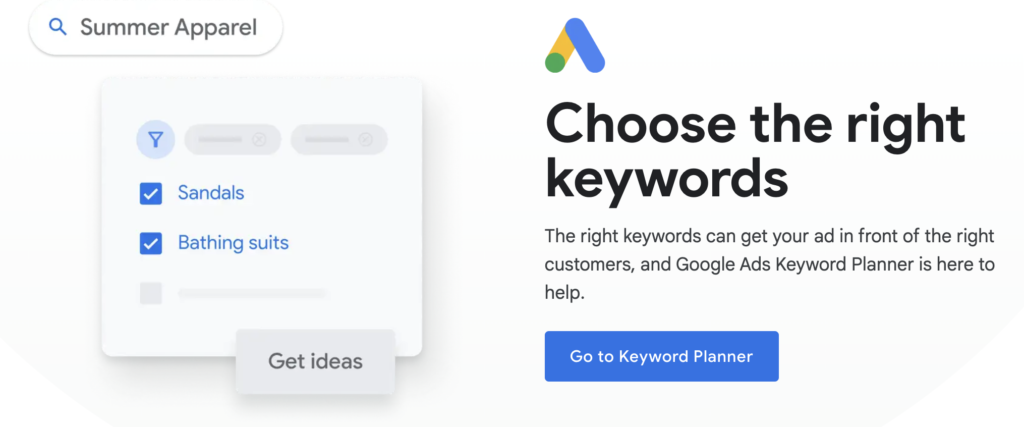In the world of digital marketing, keyword research is crucial for optimizing your online presence.
But what exactly are keyword research tools, and why should you use them?
We discuss the benefits of utilizing free keyword research tools and delve into the top 5 options available.
From Google Keyword Planner to Ubersuggest, we guide you on how to effectively use these tools for keyword research.
It’s important to understand the limitations of free tools as well.
Let’s get started on maximizing your SEO potential!

What Are Keyword Research Tools?
Keyword research tools are essential for digital marketers and SEO professionals to identify valuable keywords that can drive organic traffic to their websites. These tools, like Ahrefs Webmaster Tools, Google Keyword Planner, and Google Search Console, help users discover search volume, ranking difficulty, and keyword ideas, making them critical for effective SEO and content strategies.
Why Should You Use Free Keyword Research Tools?
Using free keyword research tools provides a cost-effective way for marketers to gain insights into keyword ideas, search intent, and competition analysis, which are crucial for optimizing their digital marketing strategies.
These tools offer an array of benefits that aid in honing in on the right keywords to target for improved website visibility and ranking on search engine result pages.
Understanding the search intent behind user queries allows marketers to customize their content to meet the needs and expectations of their target audience.
Analyzing competition through these tools enables businesses to identify gaps and opportunities, guiding them in developing a competitive edge in the market.
Evaluating traffic potential helps marketers prioritize keywords that can drive high-quality organic traffic to their websites, enhancing visibility and ultimately conversions.
What Are The Best Free Keyword Research Tools?
In terms of free keyword research tools, several stand out for their robust features and user-friendly interfaces, including Google Keyword Planner, AnswerThePublic, Keyword Tool, Ubersuggest, and Keyword Surfer.
Google Keyword Planner
Google Keyword Planner is a free tool offered by Google Ads that helps users find keyword suggestions, check search volume, and analyze keyword difficulty.
With Google Keyword Planner, users can input seed keywords related to their business or industry, and the tool generates a list of relevant keyword ideas along with their search volume data. This can give valuable insights into which keywords are popular and worth targeting. The tool provides information on the level of competition for each keyword, allowing users to assess the difficulty of ranking for specific terms.

AnswerThePublic
AnswerThePublic is a unique tool that provides keyword ideas based on actual search questions and queries, making it an excellent resource for content creation.
By analyzing search data from search engines like Google, AnswerThePublic uncovers the most common queries and topics that people are searching for. This insight allows content creators and SEO professionals to understand what their target audience is looking for, enabling them to customize their content to meet those needs. For example, if a marketer wants to write a blog post about ‘best digital marketing strategies,’ they can use AnswerThePublic to discover related questions like ‘What are the latest trends in digital marketing?’ and ‘How can I improve my SEO rankings?’
Keyword Tool
Keyword Tool is a powerful keyword generator that provides insights into search volume and competition analysis, helping users find profitable keywords for their SEO campaigns.
One of the key features of Keyword Tool is its ability to generate a wide range of keyword suggestions based on the seed keyword entered by the user. This feature helps in uncovering long-tail keywords that have lower competition but high search volumes, allowing websites to target niche markets effectively.
Along with keyword generation, Keyword Tool offers valuable search volume insights, informing users about the popularity of specific keywords. This information is crucial for selecting keywords that are in demand and have the potential to drive organic traffic to a website.
Ubersuggest
Ubersuggest is a comprehensive keyword research tool that offers keyword ideas, search volume data, backlink analysis, and domain rating insights.
By utilizing Ubersuggest’s vast database of keyword suggestions, users can uncover new keywords to target in their SEO campaigns. The search volume data provided by Ubersuggest allows for a better understanding of how popular certain terms are, aiding in content planning and optimization strategies. The backlink analysis feature helps users evaluate their website’s backlink profile and identify areas for improvement to enhance their site’s authority. The domain rating insights offered by Ubersuggest enable users to gauge the strength of their website and competitors, thus informing strategic decisions in the competitive online landscape.
Keyword Surfer
Keyword Surfer is a free browser extension that provides keyword suggestions and search volume data directly in the search results, making it a convenient tool for quick keyword research.
The beauty of Keyword Surfer lies in its seamless integration, giving users instant access to valuable keyword insights without the need to navigate to separate tools or websites. With just a simple search query, users can uncover a treasure trove of relevant keywords, enabling them to optimize their content strategy efficiently. This time-saving feature streamlines the keyword research process, allowing users to make informed decisions and stay ahead in the competitive digital landscape.
How To Use These Tools For Keyword Research?
Using keyword research tools effectively involves starting with a broad topic, utilizing seed keywords, analyzing search volume and keyword difficulty, considering long-tail keywords, and exploring related keywords and questions.
Start With A Broad Topic
When starting keyword research, begin with a broad topic to generate a wide range of seed keywords.
Starting with a broad topic lays the groundwork for comprehensive keyword research, allowing you to cast a wide net and uncover potential keyword opportunities that might have otherwise been overlooked. By exploring a diverse range of seed keywords related to the overarching topic, you not only expand your initial pool of ideas but also set the stage for more focused and targeted keyword analysis later on.

Use Seed Keywords
Seed keywords are the primary terms related to the broad topic that are input into keyword generators to discover more keyword ideas.
When conducting keyword research, starting with seed keywords is crucial as they form the foundation of your search. These initial terms help you to delve deeper into specific keyword variations and related terms that your target audience might be using.
By inputting seed keywords into keyword generators, you can uncover a plethora of keyword ideas that you may not have initially considered. These tools analyze search volume, competition, and relevance, allowing you to identify high-value keywords for your SEO strategy.
By refining your search using modifiers and filters, you can narrow down the extensive list of generated keywords to find the most relevant and impactful ones for your content.
Analyze Search Volume and Keyword Difficulty
Analyzing search volume and keyword difficulty is crucial for understanding the potential traffic and competition for each keyword.
By diving into the search volume data, you can gauge the level of interest or demand for a specific keyword. Higher search volume indicates greater potential traffic to your website, which can lead to increased visibility and potential conversions. On the other hand, examining keyword difficulty provides insights into the level of competition you may face when trying to rank for that particular keyword. Balancing high search volume with manageable keyword difficulty is key to selecting effective keywords for your SEO strategy.

Consider Long-Tail Keywords
Long-tail keywords are specific phrases that target more precise search intent and often have higher conversion rates due to their targeted nature.
By using long-tail keywords, businesses can reach a more targeted audience interested in specific products or services, leading to higher quality leads and conversions. These keywords typically have lower competition, making it easier to rank higher in search engine results pages. For example, instead of targeting the broad keyword ‘running shoes,’ a long-tail keyword like ‘best running shoes for flat feet’ caters to a more specific audience seeking a particular type of product.
Look At Related Keywords and Questions
Exploring related keywords and common search questions can provide additional keyword ideas and enhance content creation.
Related keywords and common search questions play a crucial role in guiding content creation strategies. By diving into related keywords, you can uncover niche topics and areas of interest that can attract a specific audience. Common search questions, on the other hand, offer valuable insights into user queries and concerns, allowing you to tailor your content to address their needs directly.
Utilizing these resources can not only improve your search engine visibility but also help establish your website as a reliable source of information. By incorporating these insights into your content strategy, you can better engage with your target audience and provide them with the valuable content they are seeking.
What Are The Limitations of Free Keyword Research Tools?
While free keyword research tools offer valuable insights, they come with limitations such as restricted data, lower data accuracy, and fewer features compared to paid tools.
Limited Data and Features
Free keyword research tools often provide limited data and fewer features compared to their paid counterparts.
These limitations can impact the accuracy and comprehensiveness of keyword research efforts. Free tools may have restrictions on the number of keyword suggestions provided, the depth of competitor analysis, and the ability to filter results based on specific criteria.
Advanced features like keyword difficulty scoring, search volume trends, and SERP analysis are often reserved for premium tools. This lack of in-depth data can hinder the ability to uncover valuable long-tail keywords, assess keyword competitiveness effectively, and optimize content for targeted searches.
Less Accurate Data
The data provided by free keyword research tools may not be as accurate as data from paid tools, which can affect the reliability of keyword research.
These free tools often have limited access to search volume data, click-through rates, and other important metrics that can greatly impact the effectiveness of SEO strategies. In many cases, the information provided by free tools may be outdated or based on a small sample size, leading to less reliable insights for optimizing website content. This can result in choosing keywords that are either too competitive or not relevant to the target audience, ultimately hindering the website’s organic search performance.
May Not Cover All Languages and Countries
Free keyword research tools may have limited language and country coverage, restricting their utility for global keyword research.
For businesses aiming to reach diverse markets around the world, the restricted coverage of these tools might hinder their ability to identify relevant keywords in specific regions and languages.
This limitation could potentially result in missed opportunities to optimize content for international audiences, leading to lower visibility and engagement across various regions.
Inaccurate or incomplete keyword data from limited coverage could also impact the overall effectiveness of SEO strategies and hinder the expansion into new markets.
Conclusion
In conclusion, free keyword research tools play a vital role in SEO and digital marketing by providing valuable insights into keyword ideas, search volume, and competition analysis without incurring additional costs.
These tools enable marketers and website owners to identify relevant keywords to target, optimize their websites for search engines, and create compelling content strategies to attract their target audience. By utilizing keyword research tools, businesses can gain a competitive edge by understanding what their potential customers are searching for and aligning their content accordingly.


